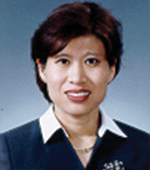
Nam Mi Kang
Konkuk University, South Korea
Title: Interactions between maternal age and body mass index affect fat content and calorie of human milk
Biography
Biography: Nam Mi Kang
Abstract
Purpose: The breast-feeding is known to have lots of advantages for infants in nutritional, protective and developmental aspects. Macronutrients of human milk (HM) were generally known and reported to be independent of most of maternal factors only except lactation period and premature delivery. However, there were significant controversies on the issue. Interestingly, maternal age and body mass index (BMI) were reported to significantly affect fat components of HM. We evaluated the association between macronutrients of human milk (HM), and interactions of maternal age and body mass index (BMI) in matched conditions.
Methods: Totally 80 HM samples were collected from healthy breast-feeding mothers at fourth lactation week. HM macronutrients and maternal data were analyzed. Mothers were sub grouped into four groups by maternal age (20s/30s) and BMI (overweight/normal). The collected samples were frozen and stored in plastic containers at -20°C. The samples were thawed at 45°C for homogenization using MIRIS® Sonicator (Miris AB, Uppsala, Sweden) and the samples were analyzed using Semisolid-state mid-infrared milk analyzer (MIRIS® Human Milk Analyzer, Miris AB, Uppsala, Sweden).
Results: Two-way ANOVA revealed significant interactions between age and BMI to affect macronutrients in HM; fat, carbohydrate, and calories. Moreover, inverse responses of fat and calorie to BMI were found in different age groups. The evaluation of over- or under-weighted infants warrants considering maternal age and BMI.
Conclusion: The interactions between maternal age and BMI were found to affect HM composition. Interestingly, the inverse responses of milk fat and calorie to the BMI were found in different age groups in Korean mothers. Thus, the evaluation and management of over- or under-weighted infants warrants considering maternal age and BMI. In the further studies, the effects of these interactions should be evaluated in the view of the growth of infants enrolling enough numbers of subjects in controlled maternal conditions and in the different racial groups.

